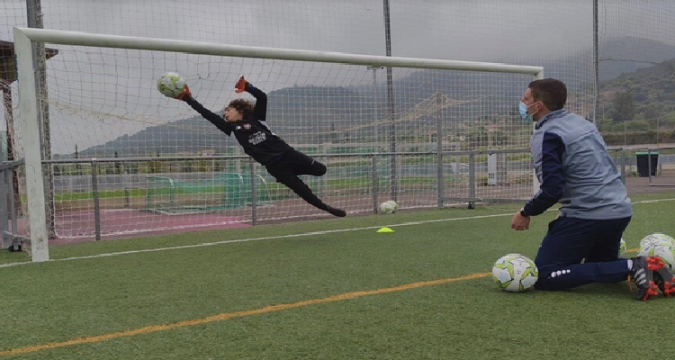
Success in football is frequently recognized on the field, but it is the cornerstone of that success. Every successful football team has a committed staff that works nonstop to make sure that players are ready, encouraged, and performing at their best. Building a unified and efficient team that can compete at the top levels requires an understanding of a football club’s primary personnel requirements.
1. Head Coach: The Strategic Leader
At the forefront of any football club is the head coach, whose vision and leadership shape the team’s identity. The head coach is responsible for developing tactical strategies, designing training sessions, and making crucial decisions during matches. Their ability to inspire and motivate players is just as important as their technical knowledge of the game.
The head coach must also be adaptable, capable of evolving tactics based on the strengths and weaknesses of both their own team and their opponents. They cultivate a winning mentality and create a positive team culture that fosters collaboration and trust among players and staff alike.
2. Assistant Coaches: The Tactical Support
While the head coach sets the direction, assistant coaches play a vital role in executing that vision. Typically, assistant coaches specialize in specific areas, such as defense, attack, or goalkeeping. Their expertise allows for focused training, enabling players to refine their skills in these critical aspects of the game.
Moreover, assistant coaches serve as a bridge between players and the head coach, facilitating communication and providing additional guidance. This dynamic helps maintain a supportive environment where players feel comfortable discussing their development and any challenges they face.
3. Sports Performance Staff: Health and Conditioning Experts
In modern football, player fitness and health are paramount to achieving success. The sports performance staff includes strength and conditioning coaches, physiotherapists, and athletic trainers. These professionals work closely to develop and implement training programs that enhance physical performance while reducing the risk of injuries.
Strength and conditioning coaches design tailored workouts aimed at improving players’ strength, speed, and endurance. Meanwhile, physiotherapists focus on injury prevention and rehabilitation, ensuring that players can return to the field as quickly and safely as possible. Their combined efforts are essential for maintaining the overall health of the squad throughout the demanding season.
4. Nutritionists: Fueling Optimal Performance
Proper nutrition is a cornerstone of athletic performance. Nutritionists play a crucial role in developing individualized meal plans that align with each player’s unique needs, focusing on energy requirements, recovery, and overall health.
These experts educate players on the importance of balanced diets, hydration, and nutritional timing—key factors that can significantly impact performance on match days. By fostering healthy eating habits and providing guidance on food choices, nutritionists empower players to take charge of their wellness and enhance their performance.
5. Sports Psychologists: Mental Resilience Coaches
The mental aspect of the game is just as important as the physical. Sports psychologists help players develop mental resilience, cope with stress, and enhance focus. They provide tools and techniques to manage performance anxiety, build confidence, and maintain a positive mindset throughout the season.
By offering individualized sessions or group workshops, sports psychologists create an environment where players can openly discuss their mental challenges and work towards overcoming them. This focus on mental health contributes significantly to overall team performance, especially in high-pressure situations.
6. Data Analysts: The Insights Specialists
As football increasingly becomes a data-driven sport, the role of data analysts has grown in importance. These professionals analyze performance metrics, player statistics, and match data to provide valuable insights that inform tactical decisions and training strategies.
By identifying trends, strengths, and weaknesses, data analysts equip coaches and players with the information needed to improve performance and make informed adjustments throughout the season. Their expertise in interpreting data can give a club a competitive edge, allowing them to stay ahead of their rivals.
7. Administrative and Support Staff: The Organizational Backbone
Behind the scenes, a team of administrative and support staff ensures that everything runs smoothly. From team managers to logistics coordinators, these individuals handle essential tasks such as scheduling, travel arrangements, and day-to-day operations. Their work is crucial for maintaining organization and efficiency within the club.
Additionally, marketing and communications teams play a significant role in promoting the club, engaging with fans, and building a strong brand presence. Their efforts contribute to the overall success of the club, both financially and in terms of public image.
Creating a winning football club requires more than just talented players; it demands a well-rounded support system that encompasses various roles and responsibilities. Each position, from the head coach to the administrative staff, plays a vital role in building a cohesive and effective organization. By investing in and nurturing these key staffing needs, football clubs can establish a solid foundation that not only enhances on-field performance but also promotes long-term success in the ever-evolving world of football. In this collaborative environment, every staff member’s contribution is invaluable, demonstrating that behind every great team is a dedicated support network committed to achieving greatness together.